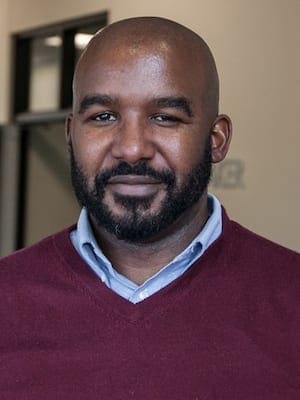Once upon a time, there were laws in place to prohibit the following things from occurring in the state of Missouri, the state where I live.
For example, it was unlawful for a milkman to run while delivering milk, or for clothes to be hung outdoors on clotheslines in order for them to dry, or for bathtubs that sat on four legs that resembled animal paws to be installed in private residences, or to frighten a baby, or to provide beer to elephants.
Today, none of these laws is enforced in its original form.
Over time, people realized that they didn’t adequately address the needs of the people, or animals, that they were created to serve.
So, they were either amended so they would better do what they were created to do, or they were taken off the books altogether.
In Luke 13:10-17, Jesus engages in a conversation around the idea of recognizing that when we follow a law or tradition in a way that doesn’t adequately exemplify God’s grace, God can require us to modify our understanding of that law or tradition in order for us to better represent God’s love for God’s people.
The events in the passage occur on the Sabbath. It’s the only day of the week that God commands to be a day of rest – a day when no work should occur.
The Sabbath was set aside as a day to recognize that God, after creating all things that exist, took time to rest from the creation process.
Additionally, God recognized that during the time that the children of Israel were slaves in Egypt, the Pharaoh never gave them time off to rest but relentlessly worked them every day.
The Sabbath was also to remind them they were no longer slaves.
Through the Sabbath, God wanted to provide the people with a time to be recharged physically and rejuvenated spiritually.
As Jesus is teaching in a synagogue on the Sabbath, a disabled woman comes in. In all fairness to this woman, it doesn’t seem like she came in with any particular personal agenda that day.
I imagine that she came to the synagogue on the Sabbath for the same reasons as she usually did – to worship and communicate with God and to fellowship with members of her community, although because of her infirmity she likely wasn’t treated like a full member.
Due to her disability, this woman’s life was likely hard, and going to the synagogue wasn’t necessarily an easy or fun experience.
In her culture, if a person had a physical ailment, it was attributed to personal sin. People thought that it was God’s way of getting back at you.
Without request or provocation, Jesus calls her to his side and makes her body and life better.
One of the synagogue officials becomes indignant because this act of freeing the woman from physical pain looks like work, which can’t be done on the Sabbath.
Technically, the official is not wrong. According to the letter of the law, this act of kindness could be considered an act of work.
The problem with this mindset is that the official is missing out on the spirit of the law.
God was the one who instituted the day of rest in the first place, and it was clearly God’s prerogative to modify what could happen on that day at a moment’s notice. God did just that through the act that Jesus performed for this woman.
Jesus wasn’t destroying or ignoring or setting aside the law. Instead, he was living out the fact that the law was a tool for the fulfillment of God’s grace.
He was showing everyone in the synagogue that day that a strict adherence to understanding and applying God’s law in only one way could cause them to miss out on the very thing that God was attempting to accomplish in their midst.
Our calling as Christians is to exist in community so that we can continue to make learning how to exemplify God’s grace through our lives a priority.
We are to use the knowledge that we gain through our life experiences to more effectively reflect God’s love for all those in the world in new and creative ways.
We are to welcome people into community in spite of external criteria, and we are to learn to see worship of God and service to others as one and the same.
In doing these things, I believe we will become better witnesses for the faith that we hold dear.
 Terrell Carter is an associate with Pinnacle Leadership Associates, assistant professor and director of Contextualized Learning at Central Baptist Theological Seminary in Shawnee, Kansas, and pastor of Webster Groves Baptist Church. He is the author of the forthcoming volumes, “Leadership in Black and White: Practical Suggestions to Help the Church Become a Healing Presence Between Racially Divided Communities” and “Ten Commandments for Good Negroes: Public Conversations about Black Maleness and Society’s Responses to It.” His writings also can be found on his website and on his CBTS blog. You can follow him on Twitter @tcarterstl.
Terrell Carter is an associate with Pinnacle Leadership Associates, assistant professor and director of Contextualized Learning at Central Baptist Theological Seminary in Shawnee, Kansas, and pastor of Webster Groves Baptist Church. He is the author of the forthcoming volumes, “Leadership in Black and White: Practical Suggestions to Help the Church Become a Healing Presence Between Racially Divided Communities” and “Ten Commandments for Good Negroes: Public Conversations about Black Maleness and Society’s Responses to It.” His writings also can be found on his website and on his CBTS blog. You can follow him on Twitter @tcarterstl.
A pastor, author and educator living in St. Louis, Missouri, he is the author of several books, including The Gospel According to Broadway and Taking Apart Bootstrap Theology: Gospel of Generosity and Justice.

